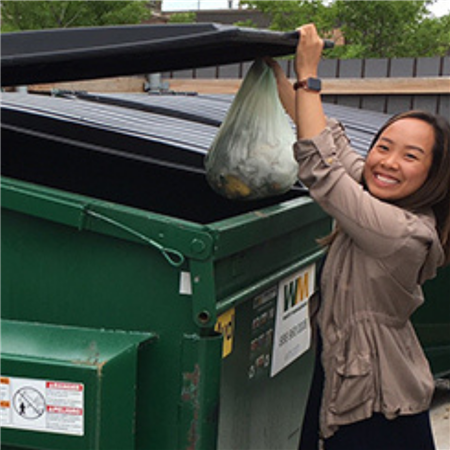
EcoEducation: Facts and Fiction in Recycling
We've had a few great meetings about recycling like the one about organic recycling a few years ago, but you think you know a little bit about recycling and then Michael Reed from the Ramsey Department of Health comes and you learn even more.
One goal of RDH is to raise awareness of where our waste goes. Trash either goes to a landfill (Burnsville, Elk River, and Rosemount are the closest to us, but Twin Cities trash also goes to Iowa, Wisconsin and North Dakota) or the waste energy facility near the Twins Stadium. Commercial composting happens in Shakopee and Empire Township. There are nine recycling facilities - 8 privately held and 1 non-profit.
As we learned in this March meeting, not all plastics are recyclable. Another goal of RDH is to end what it calls Wishcycling. Wouldn't it be nice if you could just throw everything you use that is made of plastic into the bin and have it hauled away and know that it is being recycled and used again in some way and definitely not making its way to a landfill where it will be in the ground forever and certainly not into the ocean. But that isn't how it works.
What can you be confident is recyclable? Aluminum and steel cans, glass bottles, plastics 1 2 and 5, cardboard, fiberboard, and tissue. That is really it. Put anything else into that bin and you are Wishcycling.
Plastic bags can't go in. Shredded paper won't be recycled. Soiled items are sent to the trash. Loose bottle caps have a hard time making it through (just put them back on the bottles before throwing the bottle in the bin).
Here's an interesting tidbit -- Michigan has a deposit law and has an amazing 99% recovery rate for aluminum cans. Why has Minnesota chosen to take another path? We've made a significant investment in being able to recycle all different materials. The higher value items like aluminum offset the lower value items. Minnesota does much better in the WHOLE. Recovery sites all have different capabilities and there are different contracts among haulers and there are transportation issues (how far away is the market that will use the recycled materials) All of this has to be taken into account to make recycling a viable business.
But as always - what is better than recycling? Reducing and reusing. Let's not create the waste in the first place.
